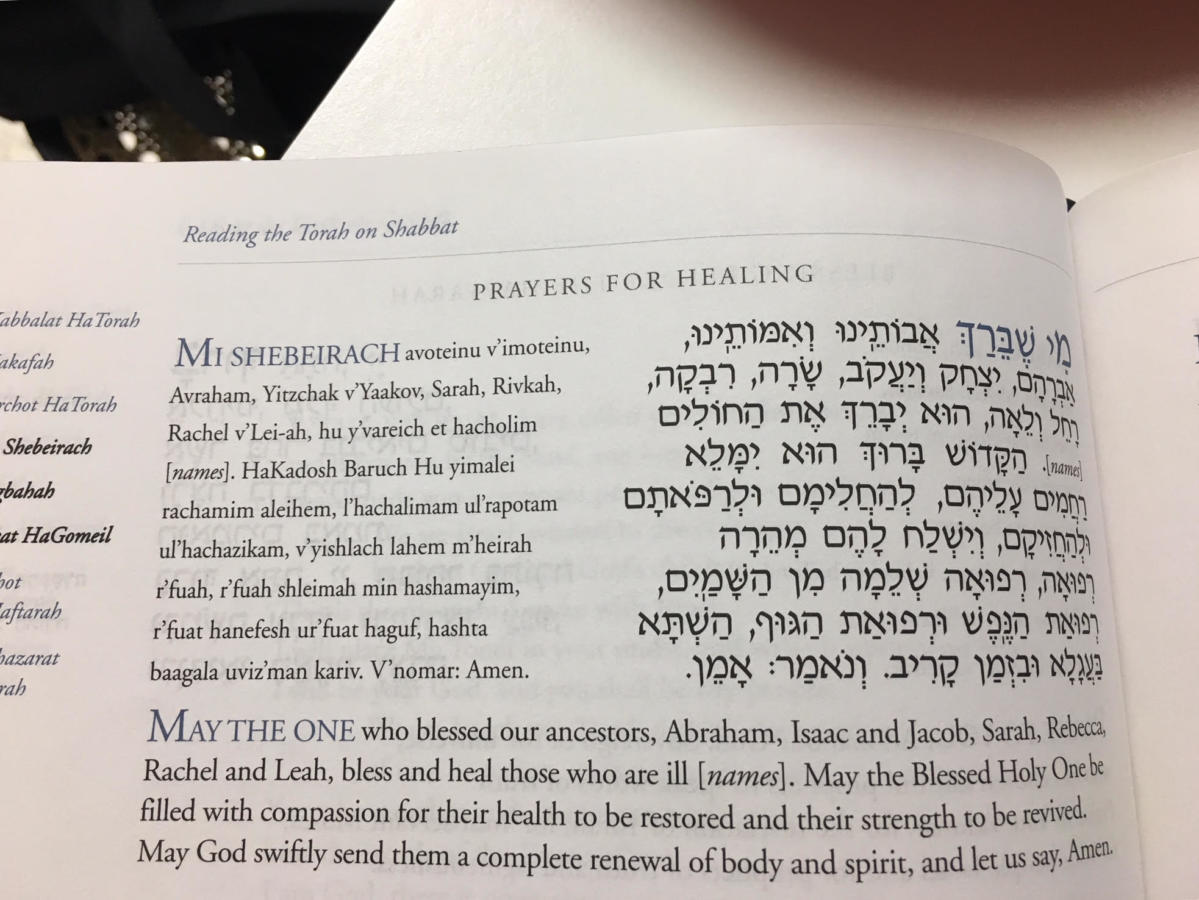“It doesn’t really work,” my daughter said.
“It might, and there is even research supporting it…” I offered, recalling a study I’d learned about when one group of patients was prayed for, and another was not.
“Mom, what matters is that you and the people who love her are around her.” (Check, she gets that lesson!)
“Yes, and I still pray. It might work, and I don’t know that it doesn’t.”
“Are you scared?” she asks, looking, likely for me to affirm that all will be okay.
“Yes,” I respond.
As I countered my daughter’s 14-year-old skepticism, I wondered about my own words. I am not a vending-machine-assumption kind of praying person. I don’t at all believe that a result emerges because I prayed for it. But, at the same time, I hold onto a non-rational belief in God. That is, I believe that God is limited in power. Still, at the same time, I pray when and for what I need to pray, including, beseechingly, for the health of those who are ill. I have to. I don’t give up.
I am clear on my non-rational belief, which despite my simplistic explanation, was taught in elegant terms by my teacher, the great Reform Jewish thinker Rabbi Eugene B. Borowitz. Yet, I struggle, too. How can I not? Right now my oldest friend is terribly ill. We grew up with our lives and families intertwined — endless playdates with Barbie Dolls, sleepovers and failed baking attempts; New Year’s Eve family dinners; and our puppet shows — two dragons, the Archduke of Pumpernickel and the Honorable Prime Minister. Our lives moved… our shared Bat Mitzvah service, her wedding, laughs and dinners, our father’s deaths, and our 51-year old conversations about the next acts in our lives. This is different.
Indeed as a rabbi, I see more life-threatening situations than I count, feeling them with varying degrees of space for breathing and perspective. As a friend, well, all that professional insight only goes so far. I fear and I cry.
At the same time, I do what I know. Judaism considers healing in three facets — healing of body, and soul, and complete healing. We have prayer in our tradition, traditionally invoked on Shabbat at the Torah, but which is also said or sung at many congregations amidst other Shabbat moments, at a bedside or when we need it. Judaism teaches that we continue to pray even when many people regard there to be no hope. We visit those who are ill, Talmud teaching that with each visit we remove 1/60 of the illness. Would that to be so! What does all of this do? Reaches out. Leaves open the possibility. Lessens the isolation.
Meantime, to my daughter’s commentary. Do I accept that illness will automatically go away with my prayer? Not at all. But I need to keep doing it. It might — help her… support her… reach a facet of God I have not yet encountered. Maybe, maybe the God who I am not sure I think is there as all-powerful will hear me and act. So, I remind my friend fighting cancer that I am praying. And I speak honestly with my children, about my fear, and about my faith.



